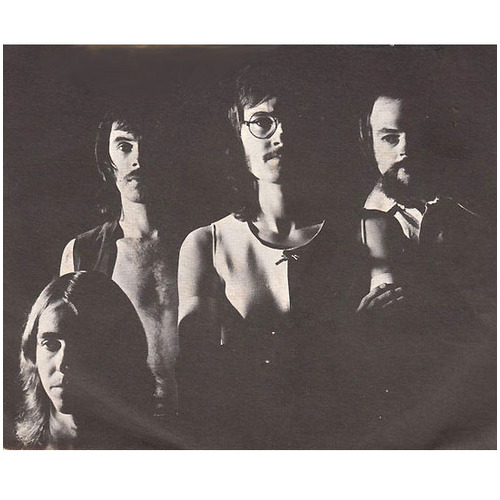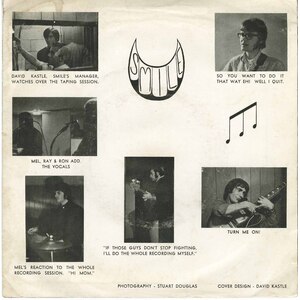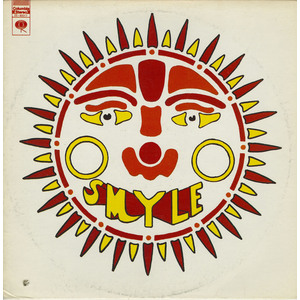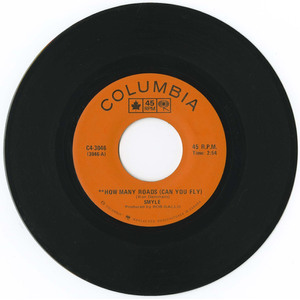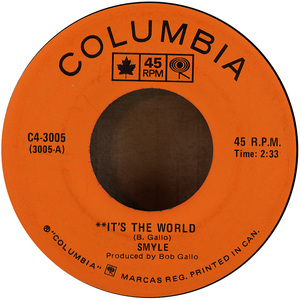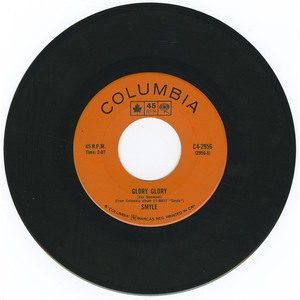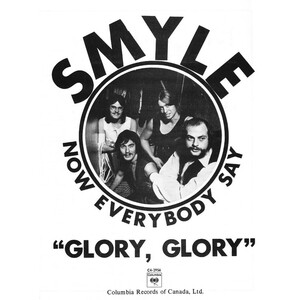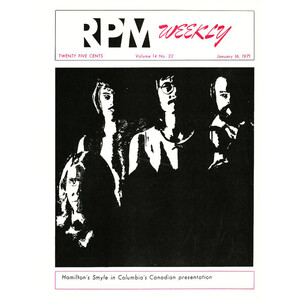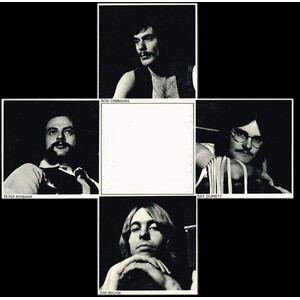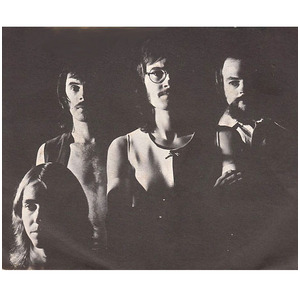Smyle
Websites:
No
Origin:
Burlington, Ontario, 🇨🇦
Biography:
Smyle — Burlington’s Psychedelic Hopefuls
Smyle’s story began in Burlington, Ontario, in 1967, when high school friends Ron Demmans (guitar, vocals), Ray Durritt (guitar), and Peter Rihbany (bass) pulled together a band called The Smile. With a drummer known simply as Mel, they quickly built a local following. Early manager Herb Lock encouraged them to move toward the Toronto market and shift their sound from R&B toward the garage-psych hybrid that was dominating clubs in Yorkville and along Yonge Street.
By early 1969 the band had signed to the short-lived indie Ruby Records, home also to Fraser Loveman’s Village S.T.O.P. Their lone Ruby single, “Be Somebody Else’s Friend” / “Why Couldn’t You,” showed Demmans’ knack for psych-tinged pop melodies. The record came in a rare picture sleeve and was pressed in higher numbers than most Toronto indies, but despite the extra push it quickly disappeared without making much impact.
Through 1969 the group played Toronto clubs and high school dances around Ontario, earning mentions in RPM and local press. In 1970, lineup changes began: drummer Mel left, replaced by Tim Regan, and the band tilted their sound toward a harder blues-rock approach suited to the new Canadian content radio market. Their live presence stayed strong, and by 1971 Columbia Records took notice, signing them as part of the label’s push to promote domestic talent alongside acts like Mashmakhan, The Magic Bubble, and Perth County Conspiracy.
At Columbia’s request, The Smile became Smyle, and momentum built quickly. Their debut single “Glory Glory” / “Will I Get Back Home Tomorrow” appeared in February 1971, promoted heavily with RPM features and label showcases. The record spent nearly three months on the national charts, peaking at #23, and Columbia sent the band into Toronto’s Sound Studio to cut a full-length album with producer John Williams and keyboardist/arranger Doug Riley.
Released in May 1971, the self-titled LP mixed light psychedelia with blues-rock edge, and balanced original songs by Demmans and Durritt with covers of Joni Mitchell’s “Woodstock” and Chuck Berry’s “Maybelline.” The album performed modestly but gave Smyle a national profile. A follow-up single, “Gotta Get It” / “Company Man,” appeared later that year but failed to chart. Still, the group toured widely across Ontario and into the U.S., building a reputation as a polished live act.
By late 1971 they were back in the studio with producer Bob Gallo, recording new material by Demmans, Durritt, and Gallo himself. Unfortunately, the gap between releases hurt their momentum. When “It’s the World” / “Everybody’s Singing” arrived in March 1972, the buzz had cooled. Another single, “How Many Roads Can You Fly” / “Take It All,” fared no better that summer. Columbia, having signed a large stable of Canadian acts, began cutting back on those who weren’t breaking through, and Smyle was quietly dropped.
Plans for a second album were shelved, and by September 1972 the band had dissolved. Though their recording career was brief, Smyle left behind a handful of strong singles and a full LP that captured the transitional moment between late-sixties psychedelia and early-seventies Canadian rock. At the center was Ron Demmans’ songwriting, which gave the band its distinctive mix of pop hooks and psych-rock colour.
Smyle may not have achieved lasting commercial success, but their story reflects both the opportunities and pitfalls of the early CAN-CON era: a talented band given a national platform, but one that proved fleeting when the hits stopped coming.
-Robert Williston
